Part 4: Practices and Strategies for Pop-Up Retailing – Support Activities
Chapter 13: Legal Considerations of a Pop-Up Operation
Chapter Overview
Pop-up shops are by definition a lower risk enterprise than opening a permanent retail store. Their temporary nature provides retailers with a tremendous opportunity for experimentation. Popping up in a temporary space will nevertheless entail some legal considerations, such as negotiating terms for use of the space with the landlord, obtaining adequate insurance coverage and any necessary municipal permits.
Temporary pop-up businesses thrive on being nimble and acting quickly to secure an empty location. With advance planning, a pop-up business will arrive well prepared to meet landlords and have a good grasp of what to seek in a short term rental agreement.
Learning Objectives
Upon completion of the chapter, readers will be able to:
- Distinguish types of pop-up insurance and rental agreements.
- Assess what materials to bring when pitching a pop-up to a landlord.
- Define characteristics of risk management for pop-ups.
Setting the Context
VIDEO
The following scenario helps to the set the context for considering some of the risks and legal issues for retailers and landlords in relation to operating a pop-up shop within a vacant building.

Figure 13.1 Yoga studios and other activity-based businesses need a specific type of business insurance policy
CC-BY Gay Stephenson, 2014
1. Types of Insurance Required
There are many different types of insurance available to small businesses. Liability insurance is a must for pop-up shops intending to sign rental agreements to occupy vacant retail space, as property owners generally require commercial tenants, including temporary pop-up tenants, to provide proof of this type insurance prior to opening.1 This chapter will also examine other types of insurance available for consideration, depending on a pop-up shop owner’s budget and tolerance for risk.
How should pop-up shop owners determine which other types of insurance to consider? This decision is best made by balancing the needs, risk tolerance and budget of the individual pop-up business owner or corporation, in consultation with an insurance broker. There are many business protection insurance options such as contents, business interruption, product and employer liability insurance.2
A pop-up shop business will have budget constraints, so the challenge is in balancing the bottom line and the owner’s comfort level with risk tolerance. For example, an independent sole proprietor entrepreneur testing a new business will need to decide how much insurance is reasonable and feasible. Their priorities will likely include keeping costs and insurance to the minimum; whereas for a large corporate retailer, a pop-up shop may be a sizeable investment and procuring fulsome insurance coverage will be vital to defray possible risks.
If the pop-up shop is held outdoors, the insurance needs may be different.
Table 13.1 Types of insurance required to operate a pop-up shop
| Type | Required | Optional |
| Commercial General Liability Insurance | √ | |
| Contents Insurance | √ | |
| Business Interruption Insurance | √ | |
| Product and Employer Liability | √ | |
| Building Property Insurance | √ | |
| Tenants Legal Liability | √ |
1.1 Commercial General Liability Insurance
Commercial general liability insurance protects a pop-up tenant if a customer is injured on the business premises and/or if a customer’s personal property is damaged. Liability insurance policies protect business owners if they are sued for damages by a customer who slips and falls. Slipping and falling is one of the most common injuries and this type of accident may occur either inside the store, or outside on the sidewalk. It’s very important for business and property owners to be protected against these types of accidents. As both the property owner and the pop-up business owner may be sued, both will need to have liability insurance policies.3
Pop-up tenants signing a rental agreement for a storefront space will need to obtain a commercial general liability insurance policy to cover claims up to a certain dollar value amount (e.g., $1M, $2M, $5M). Proof of this type of policy will nearly always be required by the landlord, prior to opening.
If the pop-up event is happening outside, in an open-air market or festival, pop-up business owners should check with the event organizers/hosts to confirm that they have obtained sufficient liability insurance and find out if the coverage includes participating businesses. Pop-ups can also arrange event insurance for a particular event. The event may be one time only, every weekend or over several days. Event insurance includes commercial general liability coverage and may include other types of insurance, such as for alcohol liability or live entertainment coverage.
Example
It’s often easier to grasp a concept when you “see” an event happen. Simple incidents can sometimes lead to public liability claims. Watch these two videos, created by insurance companies in the U.K.
1.2 Contents Insurance
Contents insurance protects the merchandise, fixtures and equipment within the premises, in case of damage, fire or theft.4 This type of insurance is worth considering to protect the loss of your investment. Contents insurance protects merchandise and fixtures in case of fire and/or theft and is not generally required by a landlord because loss of product affects the business owner, not the property owner. The property owner will have their own building insurance to protect for loss or damage due to fire.
As a first step, pop-up shop owners may want to obtain a quote for this type of insurance. Once you know how much it will cost, you can weigh the fee for protection versus the risk of losing your merchandise. For some businesses this type of insurance will be a “must have” whereas other businesses may find the added cost of contents insurance prohibitive. By weighing the risks of loss versus the cost of replacing merchandise, fixtures and equipment, a pop-up shop retailer can make a well informed decision based on their personal circumstances.
1.3 Business Interruption Insurance
If you are forced to close your business temporarily because of a fire or other insured peril, a business interruption policy provides coverage against loss of profits until the business is able to reopen. As pop-up shops are already temporary businesses, many owners will skip this type of coverage deeming business interruption a lower risk. If for some reason the pop-up is unable to function (or open) during the scheduled period due to unforeseen circumstances, the pop-up business owner may seek an alternate temporary location. However, large corporate retailers with more at stake and healthy operating budgets may be more interested in this type of insurance to protect their investment.
If your pop-up shop extends for a period of months, it is very important to review your rental agreement to ensure that if there is an incident that renders your space unusable that you do not have to pay rent during the time that the repairs are carried out. The building owner should have business interruption insurance coverage to cover the rents.
1.4 Product and Employer Liability
There are several different types of liability insurance coverage available to protect your business if you are sued because an incident happens that hurts your customers or your employees.
Product liability insurance protects a business owner in the event that their products are defective or cause serious harm to those using them.5 Many products will have liability insurance on them from the manufacturer or distributor. Given that items may be manufactured in foreign countries, any liability insurance coverage should be worldwide, but this isn’t always the case. It may be prudent for a purveyor of products to ensure product liability coverage is included in the commercial general liability policy.
Employer liability coverage protect employers if an employee suffers from work-related injuries or diseases, should the business be found negligent. According to Canadian law, retailers who employ workers are required to obtain workers’ compensation insurance to protect their staff unless otherwise exempted from having to participate.6 Check with your regional office to find out if a job role is exempt or not. The coverage is provided by different provincial organizations. In Ontario, Workplace Safety & Insurance Board (WSIB)7 is the provider and workplace insurance means that if a work-related injury occurs, businesses generally don’t need to worry about being sued by employees covered under the policy. Private insurance can be purchased as an alternative to WSIB coverage if the job role is exempted from mandatory enrolment in WSIB.
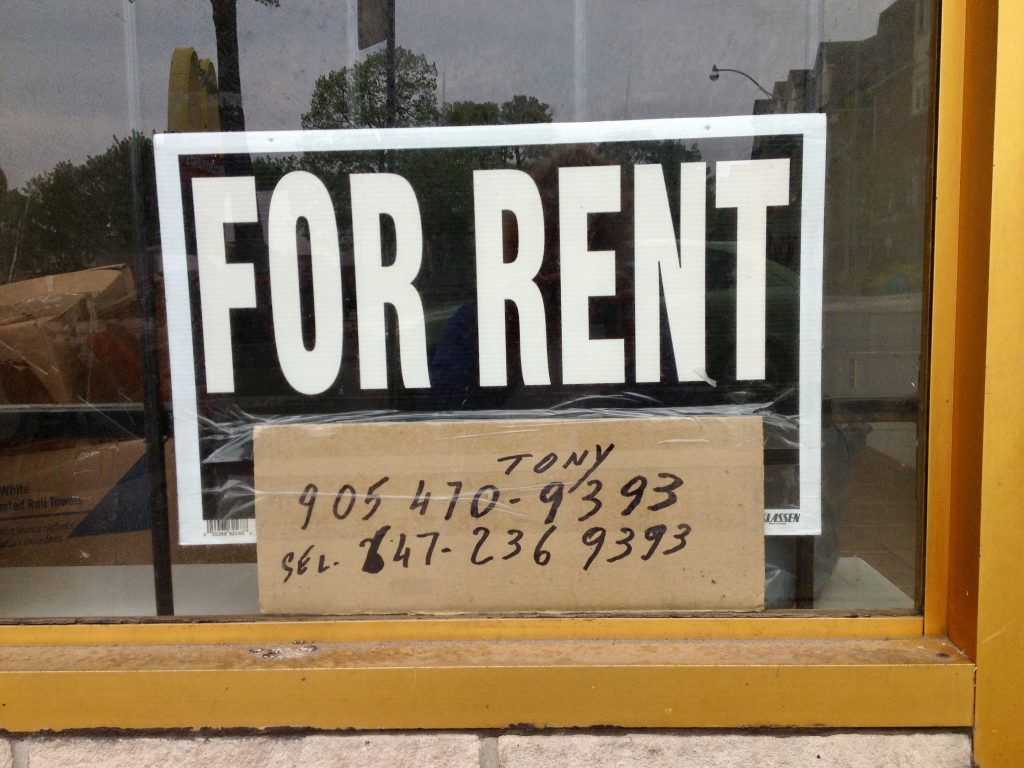
Figure 13.2 When you rent a storefront, landlords will require you to have Commercial General Liability insurance
CC-BY Gay Stephenson, 2013
1.5 Building Property Insurance
Property insurance protects the building and equipment such as furnace and air conditioner, covering the repair or replacement due to fire, or other perils. This type of policy is generally not the responsibility of the pop-up retailer. This type of insurance is generally held by the property owner.
1.6 Tenants Legal Liability
If you rent or lease space for your business or organization, you need to know who will be held liable in the case of any damages to the property. You might assume it would be the landlord, right? Actually, in a rental space, it may be the tenant who ends up on the hook. For example, in your pop-up shop, you may have an antique lamp as part of your window display. If the old wiring in the antique lamp were to overheat one night and cause a fire, the building could be badly damaged. As the lamp was your responsibility, the landlord could come after you for payment of the damages to the building. Fire, water damage, and general property destruction are all things that you may be held liable for as a tenant. Tenants Legal Liability coverage protects against such claims.
2. Pitching a Pop-up to an Insurance Company
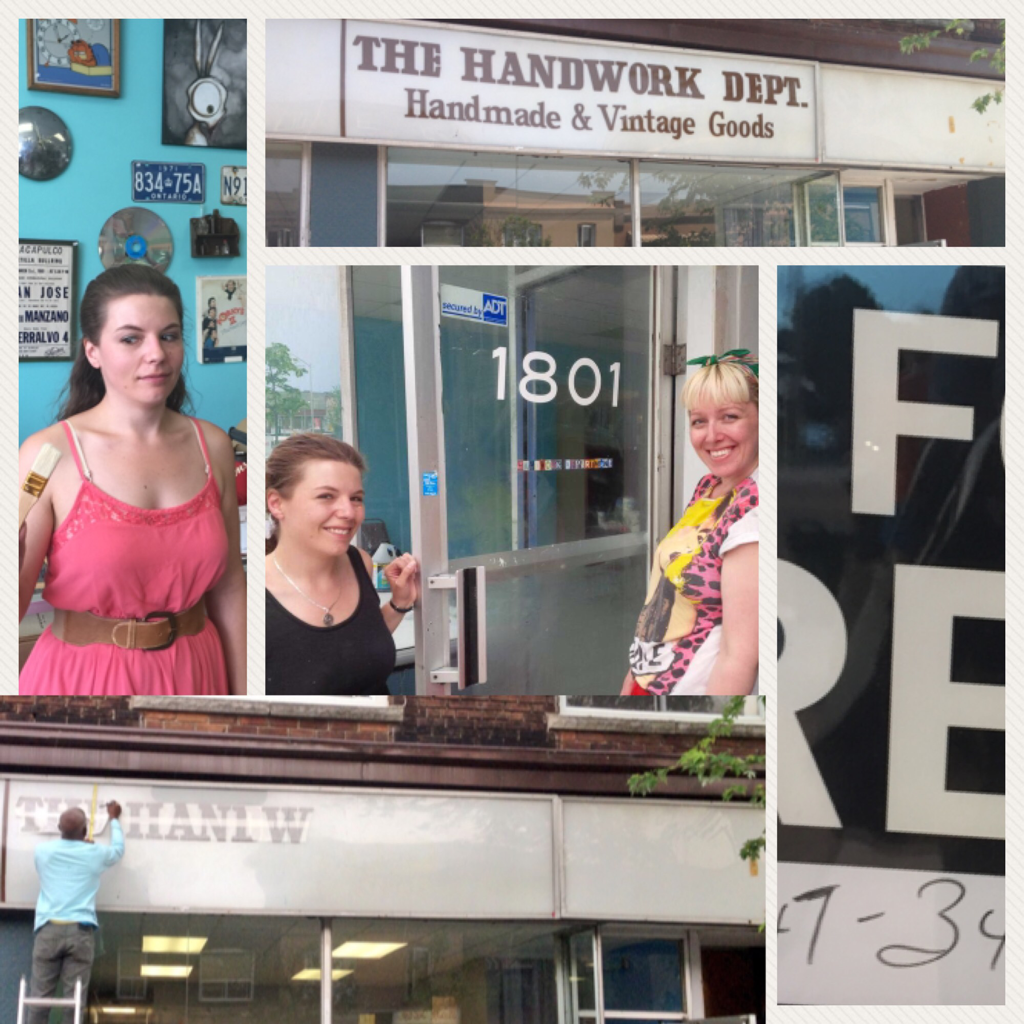
Figure 13.3 There is so much to do when opening your first pop-up shop! Take it step by step and prepare in advance by speaking to an insurance broker.
CC-BY Gay Stephenson, 2014
2.1 Obtaining Liability Insurance
Start the process by contacting an insurance broker. Be prepared to answer a number of questions that will provide the broker with some basic information about your business and the location. The broker will need to know:
- Name of the pop-up business
- Name of the owner of the pop-up business
- Type of business (e.g., fashion retail; vintage retail which may include jewellery, art, fashion, and small furnishings; art gallery, etc.)
- Projected earnings, experience
- Number of employees
- Address of the pop-up business
- Name of the property owner
- Type of building (brick, frame, are there other tenants?)
- Smoke, fire, burglar alarms, sprinkler system
- Duration of pop-up (opening and closing dates)
If you are renting a storefront location, obtaining insurance will be vital to opening your pop-up shop venture since liability insurance will be required by your landlord.8 In Canada, short-term insurance can still be a challenge to arrange with companies preferring to sell annual insurance policies. The cost of an annual policy will be insurmountable for most temporary pop-up shop businesses. A savvy broker experienced in pop-up shop policies will seek an insurer with a low cancellation fee. It is key that the insurance company understand that your business will be open for a short term, prior to issuing the policy. That way when the policy is cancelled, a prorated amount can be refunded at the end of pop-up period.
The overall premium for such a policy may be equivalent to a three month minimum, to cover the costs for administration, etc. If you plan to open pop-up shops several times per year, you may be able to obtain an annual liability insurance policy that you can put on pause between locations. If your pop-up shop is an expansion of an existing retail operation, it will be possible to negotiate an add-on to your existing coverage, in order to extend insurance to a new temporary location.
2.2 Event Insurance and Tips
Another possibility for pop-ups is to explore insurance policies geared towards events. Could your pop-up shop be considered a one month event?Event insurance is well worth considering for very short-term pop-ups such as those that last only one weekend or one week. These are options for a pop-up business to discuss with their broker.
“Pop-up shop margins are small, so be sure to read rental agreements carefully and get a solicitor’s advice. Tell your broker honestly what your plans are so that they can be upfront with the insurer and negotiate the best price.” – Stanislav Kojokin, Partner, KASE Insurance9
As a small business owner, you may already have an existing home, condo or apartment insurance policy. It may be possible to add an extra insurance policy onto an existing one which will provide coverage for your pop-up business. Some pop-up shop owners have found this to be a less expensive option. To find out if this is feasible, discuss the option with your broker.
“It is very important to review your rental agreement to see who is responsible for providing insurance coverages. Once a claim has occurred, it is too late.” – Paul Spark, Commercial Account Executive, HUB International10
Liability insurance can be the single biggest barrier to opening a retail pop-up shop location. No insurance, no pop-up. Locating a company and broker who are able to provide temporary coverage can be difficult, but don’t give up! In Canada, pop-up shops are a relatively new phenomenon and not every broker or insurance company has developed ways of dealing with the need for short-term policies. If you are having difficulty finding a broker who can help you, reach out to your networks: other pop-up shop owners whom you can contact personally or through social media to ask for contacts and referrals for insurance brokers.
Examples
In other countries such as the U.K., there are entire organizations devoted to short-term tenancies and insurance companies who specialize in this type of insurance. If you are operating a pop-up in one of these locations, temporary insurance options have been established and are therefore easier to access.
- Popupspace.com is the U.K.’s first property consultancy to specialize in pop-ups.
- Meanwhile Space has developed resources related to filling empty spaces temporarily.
3. Short-Term Rental Agreements
3.1 Pitching a Short-Term Rental to a Landlord

Figure 13.4 Bring your enthusiasm and a well thought out plan when pitching your pop-up to a landlord
CC-BY Gay Stephenson, 2016
It can be a challenge to find a landlord who is willing to rent their storefront on a temporary basis. There will undoubtedly be some negotiations and the pop-up tenant should prepare a compelling case. So how can pop-up shop business owners convince landlords that short-term rentals will be both worthwhile and provide them with benefits beyond the rent? Here are some tips:11
- Contact the landlord – always try to arrange an in-person meeting, at the rental location.
- Make a list of any improvements you are willing to make to the space, at your own expense, such as painting, thorough cleaning and small repairs to drywall, etc.
- Prepare to negotiate if necessary by doing some research to find out about average rents in the area.
- Make sure you have some basic knowledge about the area where the store is located so that you can convey with confidence that your customers will find you and you will be successful. Contact the local Business Improvement Association (BIA) for information about the area and to learn about any upcoming events or festivals which may complement your pop-up.
- At the meeting, convey a professional business image. Bring a folder with your resume and be ready to provide references from your suppliers. If you have a business plan, include it in your folder. Include any sample promotional materials you have as well as your website and social media links, to substantiate your small business. If you have held other pop-up shops, use past landlords as references and include photos of your past pop-ups.
- If possible, bring some photo mock-ups to show that you will create appealing and beautiful storefront window displays (i.e., when the landlords show the space to possible permanent tenants they will get a good first impression of the location and see the potential).
- Bring a credit rating. The landlord will need assurance that your finances are in order. If you are negotiating a tenancy of two months or less, be prepared to pay the full amount of rent up front, once you have a signed agreement. For longer terms, expect to pay first and last month’s rent.
- The bottom line is that you want the landlord to have faith in you and have confidence in your business plans. At the same time, during these meetings, pop-up business owners need to be assessing potential landlords. You will want your landlord to be honest, trustworthy and reasonable.
Popping-up in a temporary space will entail negotiating terms for use of the space with the landlord. Written documents will solidify the agreed upon arrangements for any short-term use of space. Rental agreements can take the form of a licence to use the space, or a lease. A lease is an agreement between a landlord and a tenant that conveys an exclusive interest in a property. A licence is permission from the property owner to the “licencee” for a specific use of the space.12 Both types of agreement work well for pop-up tenants.
Since pop-up tenants are filling empty spaces temporarily, landlords will often continue to seek a permanent tenant. Pop-up businesses should anticipate showings of the property during the pop-up period and expect their short-term rental agreements to include a termination clause, typically 30 days. In the event that the landlord rents the premises to a permanent tenant, the termination clause notice is served, giving the pop-up tenant the agreed upon amount of time to move out.
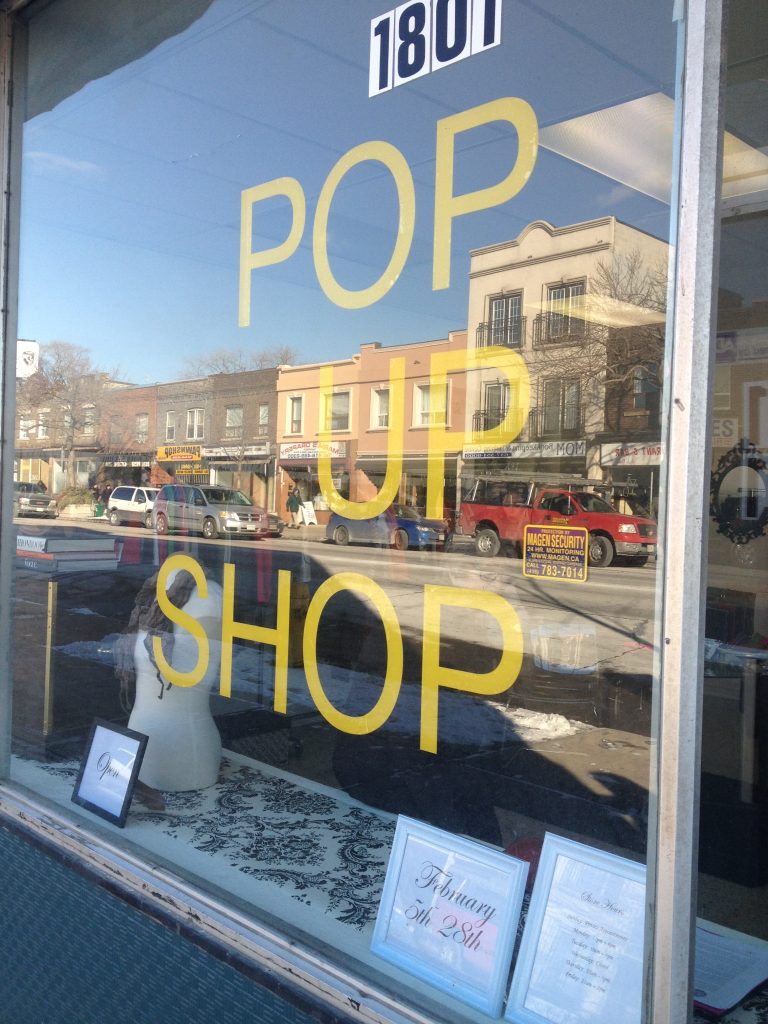
Figure 13.5 This pop-up shop on Danforth East was rented through a licence agreement with the property owner
CC-BY Gay Stephenson, 2013
3.2 Licence Agreements
A licence agreement grants permission from the property owner to the “licencee” for a specific use of the space. These types of agreements are typically used in neighbourhood revitalization projects and work well when there is a central administering organization. Licence agreements allow the administering organization to negotiate a licence agreement with the property owner and then legally make the space available to pop-up shop entrepreneurs, through use of a participation agreement.
To illustrate the licensing of space concept, Renew Newcastle (Australia) uses the analogy that a licence agreement asks for similar terms to those used when someone puts up a mobile phone tower or a billboard on a building – the right to access a space for a particular purpose on agreed terms.13
In Toronto, Ontario (Canada), the Danforth East Community Association worked closely with a lawyer to draft licence agreements for their pop-up shop project. The pop-up shop project on Danforth East hosted 32 pop-up shops over four years and helped to lower the commercial storefront vacancy rate from 17% to 6%. The licence agreements from this project are available for other organizations to use or adapt, free of charge as part of this Toolkit (p.12) developed in partnership with WoodGreen Community Services.14
3.3 Leases
A lease is an agreement between a landlord and a tenant that conveys an exclusive interest in a property. A lease typically sets out the obligations of commercial landlords and tenants such as rent, operating costs such as utilities, maintenance and other leasehold improvements. Leases are legal documents normally prepared and reviewed by solicitors because they set out the terms and conditions governing the relationship between the commercial landlord and tenant.
Commercial tenancies and leases do not have the same protections as residential tenancies and the Ontario Residential Landlord Tenant Act does not apply to commercial tenants. In Ontario, there is a Commercial Tenancies Act but it is important to understand that a signed lease agreement may take precedence over the Commercial Tenancies Act.15 When an individual or business signs a lease, they must be certain that they understand what they are committing to do and that “who is responsible for what” is clearly defined. There are no standard government commercial lease agreements; the lease terms are up to the landlord and tenant to negotiate and tenants and landlords may need to seek legal advice.
In Ontario, HST (Harmonized Sales Tax) of 13% is likely to be added to the rent and is lawfully payable even if this clause is not included in your lease. Sales tax rates vary across Canada.
Example
Commercial tenants are not protected in the same ways as residential tenants because the Ontario Residential Landlord Tenant Act does not apply to commercial leases and rental agreements. For example, when a commercial lease ends, you may have to leave. Learn more about the challenges in negotiating commercial rental agreements by reading the Frequently Asked Questions about leases, evictions, rents and deposits on Ontario’s Commercial Tenancies Act website.
3.3 Rental Agreements: What to Include

Figure 13.6 This property owner was delighted when his pop-up tenants negotiated a permanent lease after their 3 month temporary pop-up
Source: WoodGreen Community Services
The rental agreement sets out the rights and obligations for both property owners and tenants. At a minimum, the contract should include:16
- The names of the landlord and tenant
- Address of the premises
- Amount of rent plus HST and when payments are due
- What is included or not included in the rent (e.g., electricity, gas, heat, water, TMI taxes, maintenance, insurance)
- Duration of time the space will be used
- How the space will be used (e.g., retail fashion store)
- What will be done to the space (e.g., paint, attach shelves to walls)
- Exterior signage (e.g., will the new business be installing signs?)
- Hours/days of the week that the business will be operating
- What will be required at the end of the agreement (e.g., to return the premises in original condition or better; to fill all holes in the walls and touch up paint)
It is up to the pop-up tenant to ensure that the planned pop-up use is allowable in the zoning of the property. Depending on the type of business, additional permits may be required by the municipality, prior to opening, even if the zoning allows for the particular use (e.g., coffee shop, restaurant).
Rental agreements are legal contracts and whether using a licence agreement or lease, it is advisable to seek assistance from a solicitor. Realtors and property managers will have a set of pre-written forms and clauses to include in the agreement, but regardless of who puts the document together, legal contracts are complex and it is vital that both parties have a clear understanding of what they are committing to do.
Pop-up tenants should expect that their leases or licence agreements will state that the property is to be taken in “as is” condition. The pop-up tenant should verify that the heating and air conditioning systems are in working order prior to signing the agreement.17 If the pop-up space has been vacant for a long time, some repairs may need to be made prior to opening to bring the space up to standards.
Some pop-up businesses hope to transition into a permanent shop, if the location proves successful. In this case, a tenant may want to include a provision in the agreement for renewal or extension of the term.17
Example
My Perfect Pop-Up Shop is a U.K.-based organization bringing pop-up shop entrepreneurs together and providing resources to share knowledge. They have developed several short “how to” videos.
4. Permits
4.1 Permitted Uses
Municipalities have zoning by-laws which dictate the allowable uses within areas. A Main Street retail storefront will be zoned to allow many retail uses however, a licence or permit may also be required by the municipality under certain circumstances. For instance, any business selling coffee, tea or food will likely require a licence/permit prior to opening. An inspection and approval of the commercial kitchen will be part of the process, if food is being made on the premises.
The regulations and zoning requirements in most municipalities do not differentiate between temporary and permanent businesses.18 This means that pop-up businesses should seek a commercial space that is zoned to allow the particular type of business they plan to open (for example retail, restaurant, pub, or coffee shop, etc.) and expect to obtain any necessary licences or permits, prior to opening.
It’s important to have a good understanding about any permits that may be required by a potential pop-up shop business; there will be financial implications (i.e., costs) and often a waiting period for the permit to be approved.
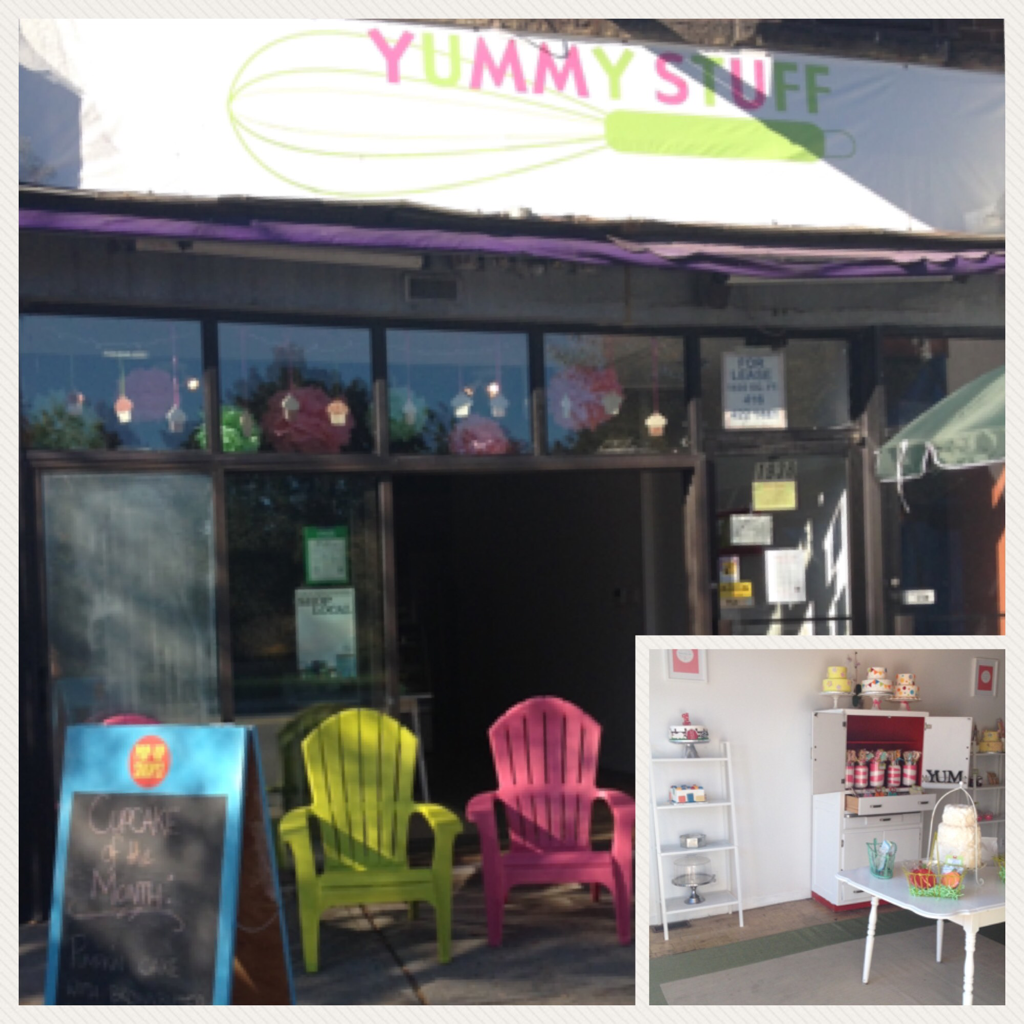
Figure 13.7 This pop-up shop required a City of Toronto licence to sell food from a retail store (Food prep was off the premises in a licenced commercial kitchen)
CC-BY Gay Stephenson, 2013
For general information about possible business permits and licences that may be needed to operate a business in Canada, a free online tool is available: BizPal. This tool can be useful to get a sense of what permits may be required,19 although the list is designed to cover every possibility and may be a bit overwhelming. The most direct route for information and advice is by going directly to the municipality in which you will be setting up business.
If the pop-up event is happening outside, in an open-air market or festival, a different set of regulations will apply. Check with the event organizers to confirm that they have obtained all the required temporary permits and/or licences and sufficient liability insurance for all those participating.
Examples
Entrepreneurs looking to open a business in one of these three major Canadian cities – Toronto, Vancouver, Montreal – will find clear online information about permits and licences that may be required within their municipality. The next prudent step is to contact city staff by telephone to ensure a thorough understanding of the application process, timelines and requirements.
- City of Toronto – Licences and Permits Section provides clear information and links.
- City of Vancouver – Permits you might need to conduct business in Vancouver are outlined by type.
- City of Montreal – Permits needed to operate a business are sorted by borough (local area). Select the borough, then search for type of permits needed.
4.2 Temporary Signage
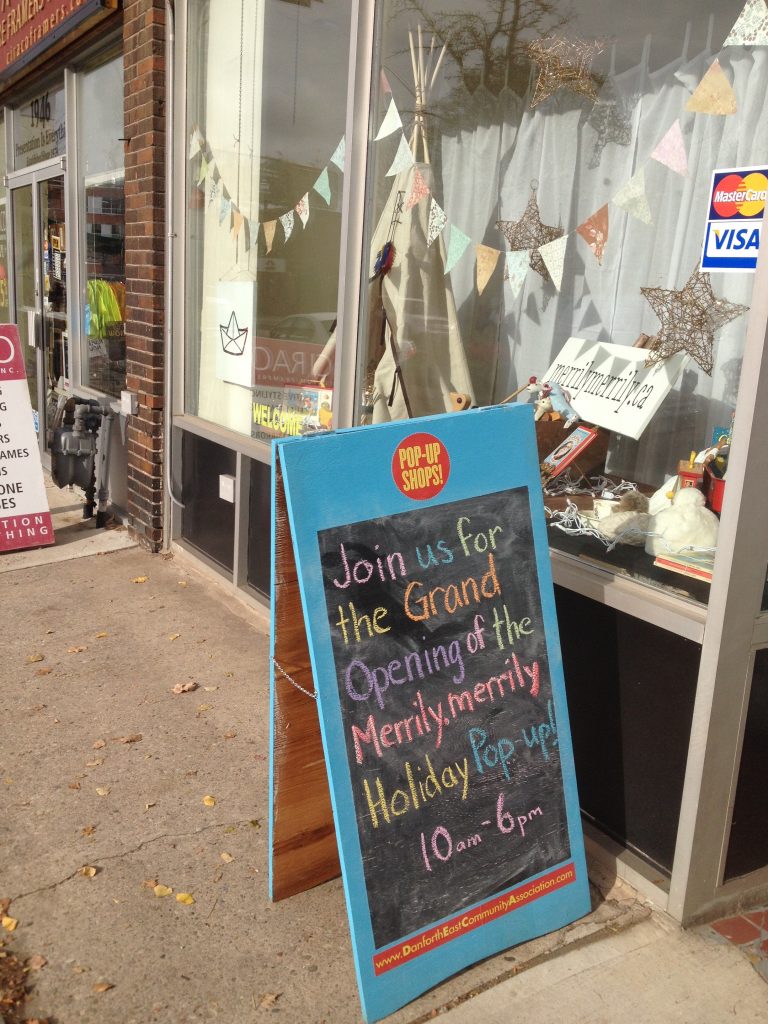
Figure 13.8 This style of sidewalk sign is a popular, eye-catching tool for pop-up shop promotion
CC-BY Gay Stephenson, 2014
Pop-up shops often rely on temporary signs such as “A frame” sandwich board signs that are placed outside the shop on the sidewalk. Municipalities will often require permits for these types of signs.20 Enforcement of sidewalk signs by-laws are often neglected as the city may have other priorities or employ a very small by-law enforcement staff. Pop-up shops may want to check with neighbouring businesses presently using A frame signs, to enquire about their experiences, and whether or not they have obtained an official permit. Since pop-up shops may be here today and gone tomorrow, they may be able to fly under the radar.
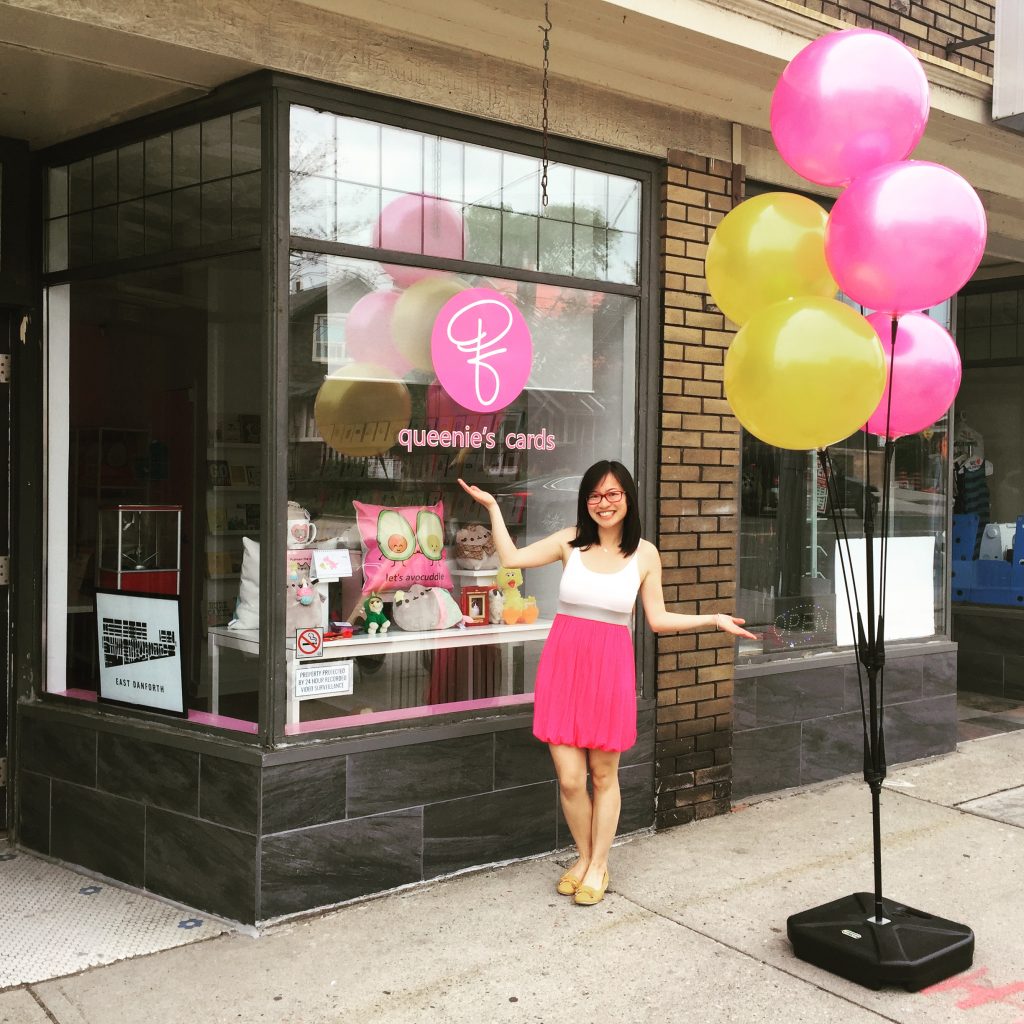
Figure 13.9 Balloons make a great sign alternative
CC-BY Gay Stephenson, 2017
Municipalities generally require businesses to obtain a sign permit and possibly a building permit, prior to erecting signs. The reasoning behind municipal sign by-laws that regulate outdoor signs and advertising space is twofold. Cities want to:
- ensure that signs are not a safety hazard
- maintain a clean and positive image
Signs have a big visual impact on Main Street. They may add or detract to/from the overall aesthetic. To build/erect a sign above a store, both sign and building permits will often be required but there may be some exceptions. In the City of Toronto, signs that are affixed to windows and do not cover more than 25% of the window do not require any permits.21
Many pop-up shops use window decals which are easy to install and remove. In addition, pop-ups tend to make use of existing storefront signage which can often be inexpensively refaced/recovered. By using window decals and recycling existing signs, pop-up shops may not have to obtain a permit.
However, if the pop-up is a corporate-run endeavour, with massive promotion and exposure, be sure to secure all the necessary permits. This will require advance planning, as obtaining permits can be a long process.
Pop-up businesses should use caution in the decision making regarding signage and be sure to consult with neighbouring retailers and/or the local Business Improvement Area (BIA) to find out more about local experiences, knowledge and by-law enforcement regarding obtaining permits. Municipalities will have signage permit information posted on their websites.
5. Risk Management
5.1 Advance Planning for Success and Failure
Every pop-up shop business needs to plan carefully to ensure success. Wise business owners may also want to develop an exit strategy in case the business fails. By identifying what could go wrong and evaluating which risks to plan for, pop-up shop owners can implement strategies to deal with any risks that may keep them awake at night. For example, earlier in this chapter, having adequate insurance was identified as an important part of risk management for pop-up businesses.22
Pop-up shops are by definition a lower risk than opening a regular permanent retail store, due to their temporary nature (no lease commitment and no permanent contracts with suppliers). Pop-up shops provide entrepreneurs with a tremendous opportunity to experiment and even a failed pop-up may lead to a successful future business plan. Since temporary businesses are not entirely risk-free, carefully assessing the approach to risk management will give entrepreneurs peace of mind.23
One method is to make a list of everything that could go wrong and then assess the likelihood of that event occurring. Risk management planning includes thinking through strategies for potential serious issues and occurrences such as:
- Fire
- Theft
- Safety
- Illness (who would step in to fill the owner’s shoes?)
- Finances (are there funds to cover all basic expenses if sales are very low?)
- Regulations (can you obtain the necessary permits for operations?)
Each identified risk will need to be assessed. Business owners can then go about developing a strategy for managing the risks they have identified. Strategies include:24
- Accepting the risk personally after assessing the impact (e.g., any stolen merchandise will be replaced by the business owner at cost)
- Transferring the risk (e.g., through an insurance policy)
- Reducing the risk (e.g., by sharing with another partner, or through additional safety or security measures)
- Eliminate the risk (e.g., no cash left on premises overnight, empty till placed by the door in full view deterring burglars looking for cash)
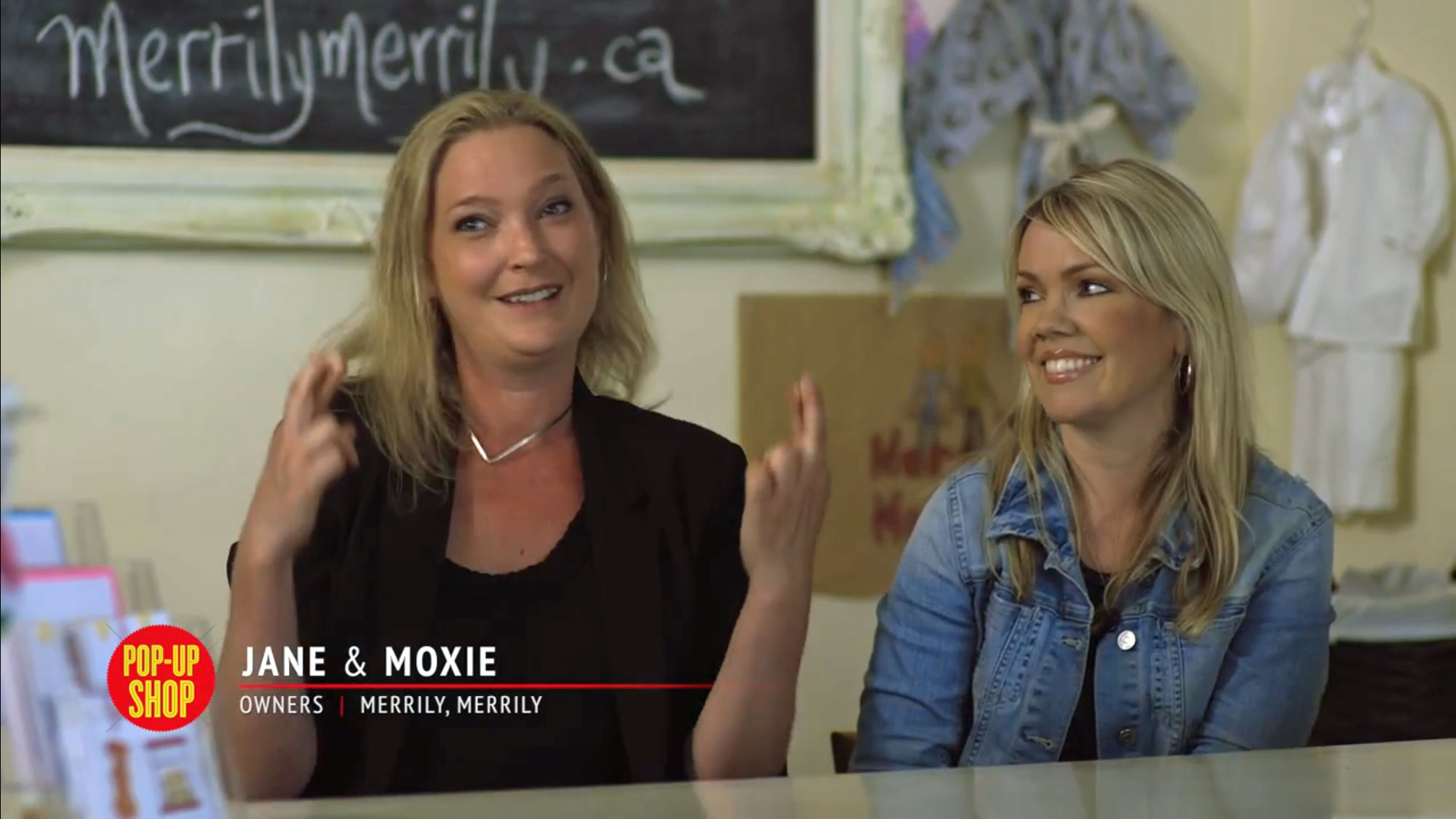
Figure 13.10 These savvy entrepreneurs did more than just cross their fingers to develop risk management plans
Source: WoodGreen Community Services
In a sense, risk management can be about assessing any areas of weakness in your business, so as to evaluate what is to be done or how best to address the problem/risk.25 One pop-up shop owner describes the risks her accomplished business faced when expanding from an online only environment to a bricks-and-mortar location:
“We were slightly concerned about theft as our merchandise belongs to our consignors. We weren’t sure how to represent theft in a transparent way to our consignors without them losing faith in our ability to take care of their inventory. Also, if something is stolen from our store it affects our online shopping/order fulfillment. We usually don’t know if something is stolen until it is ordered online and we can’t find it in the store. Then we have to explain to the customer why it isn’t available and refund their order. We end up paying the consignor for stolen merchandise. So basically, we had to come up with protocol to deal with this as it wasn’t an issue as an online only store.” – Moxie Garett, Merrily, merrily
Garett and her business partner Jane McIver also assessed the financial risk before opening their pop-up shop as they were understandably nervous about not making enough money. However, the financial risk was low and one that they could accept – it was mitigated by their established online business/income as well as the fact that their commitment was limited to the pop-up period duration. Things couldn’t get that bad!
However, in the event that things go terribly wrong, it’s wise to have an exit strategy. Formulating an exit strategy is not an indication that you have no faith in your business plan. It’s a technique used by successful entrepreneurs to mitigate risk. Should your business fail, you will want to close everything down, as quickly as possible to keep losses at a minimum. For example, a reliable exit strategy could include the provision for a 30 day notice period to terminate your pop-up rental agreement, without penalties. Developing an exit strategy is a technique used by highly successful entrepreneurs to increase their sense of security in the business venture. For example a successful business owner in Toronto who launched her first escape game business as a pop-up shop says:
“Risk management was all about if I didn’t succeed. If I were left paying rent out of pocket because I didn’t have any incoming business. I had a strong exit strategy in place in case I totally failed. I made sure to keep things easily manageable. I guess it was a big risk for me because I didn’t know if this concept would ‘take off’ or not.” – Christine Hibbard, owner, Looking Glass Adventures
Key Takeaways
In this chapter, you learned:
- about obtaining insurance and basic risk management strategies for pop-up operations
- how to pitch a pop-up to owners of vacant properties
- what to consider when negotiating a rental agreement and the reasons to seek professional advice before signing a contract
Key Terms:
- Commercial General Liability Insurance
- Contents Insurance
- Licence Agreement
- Lease
- Permit/Licence (from municipalities)
- Risk Management
Mini Case Study
Fit Dads!
Situation:
Fit Dads is a membership-based online community for fathers on the move. They had a healthy user base and were influential in the sector. Vendors advertised on their site regularly and users were actively engaging with each other on a monthly or weekly basis. The site offered member discounts at participating businesses, giving them another reason to log in on a regular basis.
Fit Dads was ready to make the leap from an online community to an in-person pop-up event in which multiple vendors and members would meet in one place. Organic produce farmers, health-industry vendors, exercise equipment makers, and a host of others were ready and eager to join in on the potential event, but Fit Dads had yet to research the legal requirements for such an event.
Solution:
The pop-up event was meant to incorporate a combination of experiential and transactional elements, so Fit Dads wanted to make sure that it ran seamlessly and without any problems. They contacted their local government, checked online, and reached out to a lawyer to first determine what legal considerations they need to understand and where to get the permits and insurance required. Fit Dads acted as the event organizers and were granted usage rights to the space they needed by the landlord via a short-term lease agreement. Fit Dads then signed participation agreements with each vendor. Commercial public liability insurance coverage was acquired by Fit Dads for the event overall, but each vendor also had to get their own insurance for specific areas of coverage. Food safety and other regulatory concerns were reviewed each vendor and Fit Dads’ own lawyer to ensure that nothing was overlooked.
Result:
The event was a success with each vendor recording sales above their early predictions. No major incidents occurred, and the visitors had a great time seeing all the different products and services for sale. The event helped Fit Dads’ online community grow and started fostering demand for more pop-up events. Fit Dads also noted that they could tailor the mix and variety of vendors to each future pop-up location in efforts to match the interests and needs of customers in specific markets.
Please answer the following questions:
- If you wanted to open a pop-up shop that sells baked goods, what legal or regulatory considerations do you think are important?
- List three types of insurance that the vendors with shops in Fit Dads’ event would not necessarily need to have and explain why.
References
- Scherz, T., & Stephenson, G. (n.d.). Pop-up Shop Toolkit. WoodGreen Community Services.
- Kryworuk, P. (2016, July 26). Insurance For Small Businesses: Prudent Management Of Risk. Mondaq.
- Wilson, N. (2016, January 2016). Once You Pop (Up), You Just Can’t Stop, Property and Leasing. LegalVision.
- Arts Law Information Sheet. (n.d.). Arts Law Centre of Australia.
- Arts Law Information Sheet. (n.d.). Arts Law Centre of Australia.
- Ward, S. (2016, September 9). Guide to Workers’ Compensation Insurance in Canada. the balance.
- New Employer’s Guide to the WSIB. (n.d.). Workplace Safety and Insurance Board.
- Scherz, T., & Stephenson, G. (n.d.). Pop-up Shop Toolkit. WoodGreen Community Services.
- Kojokin, S. (July 2017).
- Spark, P. (July 2017).
- Tsay, J. (2014, April 17). 7 Tips for Negotiating a Pop-up Store Lease. FindLaw.
- Trinh, L., (2015, March 27). What Is The Difference Between a Lease and a License? FindLaw.
- How Renew Newcastle Works. (n.d.). Empty Spaces.
- Scherz, T., & Stephenson, G. (n.d.). Pop-up Shop Toolkit. WoodGreen Community Services.
- Nightingale, H. (2014, May 28). Signing a commercial lease? How well do you know your rights and responsibilities? Howard Nightingale Professional Corporation.
- Badr Morgan, J. (2017, April 11). Here today, gone tomorrow: The allures and legal considerations of pop-up shops. Ward and Smith, P.A.
- Armond, A. (2011, March). New Legal Concerns Accompany the Pop-Up Store Trend, Retail Law Strategist.
- Business Permit and Licence Information. (n.d.). BizPal.
- Kadlecek, C. & Watkins, T. (2015, March 11). The pop-up regulatory maze. Retail Law Advisor.
- Temporary Signs. (n.d.). City of Toronto.
- Temporary Signs. (n.d.). City of Toronto.
- Manage Risk Guide. (n.d.). Info Entrepreneurs.
- Getting started: The Renew Newcastle experience. (n.d.). Empty Spaces.
- Manage Risk Guide. (n.d.). Info Entrepreneurs.
- Manage Risk Guide. (n.d.). Info Entrepreneurs.



